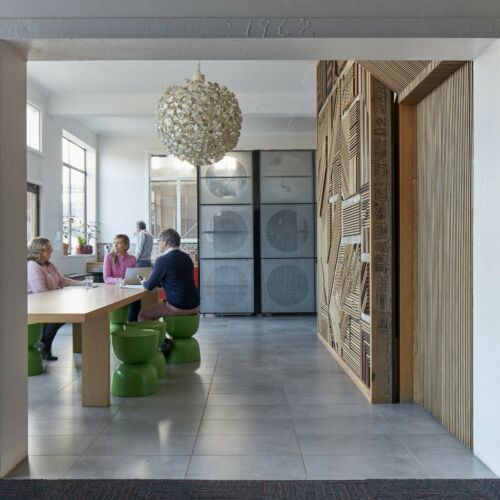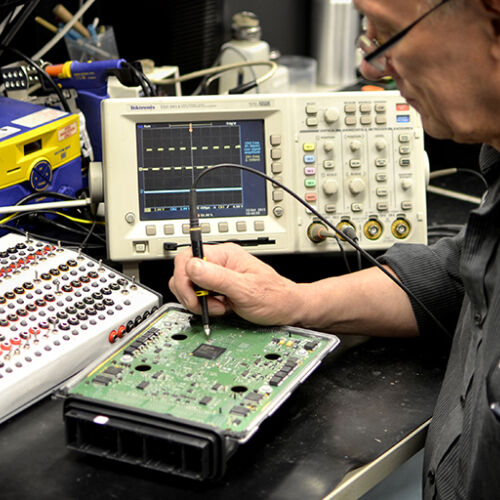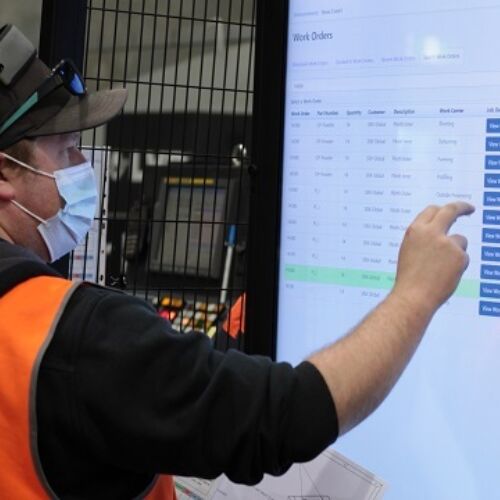Background and circular economy
Established in 1996 Egans specialises in the removal, storage, and upcycling of commercial workstations and office furniture. Egans promotes high-quality sustainable used office workstations and office furniture as a sustainable alternative to new furniture. The Wise Office Furniture Program promotes high-quality sustainable second hand office workstations and office furniture as a sustainable alternative to new furniture.
Egans maximises value retention of used furniture to prolong their lifecycle. They demonstrate a championing level of maturity in the circular economy (25/25). The improvement of the company occurs through process monitoring and improvements in circular economy practices, raising awareness of their stakeholders on environmental impacts, and following a formalised environmental management system.
Drivers for circular economy adoption
The founder's personal values and passion for sustainability and a keen interest to transform the company be an industry leader drove Egans' adoption of the circular economy model. The business potential and financial benefits of following a circular model also drove the adoption. Growing market demand also motivated the adoption of a circular economy vision.
Circular economy practices adopted
- Procurement of sustainable products
- Local sourcing of crates and skates
- Produced from recycled plastics
- Reusable packing
- Renewable electricity is used in warehousing
- Reduction efficiency by installing LED lighting
- The furniture that they collect are graded and resold directly
- The furniture that is slightly damaged is repaired for resale
- Usable parts from rejected furniture replace damaged parts of used furniture
- The same type of furniture is assembled using undamaged material components from rejected furniture
- A different form of furniture is assembled using undamaged material components from rejected furniture
- Components with no commercial value are divided into materials and transferred to recyclers for resource recovery
Company changes with the adoption of circular economy
Egans started as an auctioneer who auctioned 1,000 pieces of furniture per week across Sydney and Melbourne. However, the system broke down as both sales and prices dropped. The reduced demand drove Egans to transition to upcycling second-hand furniture from 2005.
Barriers and challenges
Barriers and challenges include:
- Securing used furniture for resale
- People’s attitudes to reusing furniture
- High transport costs of returning damaged products
- Lack of consistent policy and regulation to drive a circular economy
- Non-enforcement of existing policies that supports a circular economy
Critical success factors for circular economy
Critical success factors include:
- Vision and commitment of the founder
- Developing a viable business model
- Circularity built-in at all stages
- Persistence in the circular journey
- Digitalisation
- Educating the workforce
- Openness to learn
- Collaboration and knowledge sharing with suppliers/customers
- Support and buy-in from customers
- Changing purchasing managers' mindset via education and engagement
Benefits of adopting a circular economy
Egans have been able to grow the company and gain economic benefits by adopting the circular economy model, while also creating a better culture and feel-good environment. Externally they have developed and retained an appreciative customer base, and subsequently gained brand awareness and value. Being able to provide high quality restored furniture at a lower cost (compared to new furniture) has provided a competitive edge.



